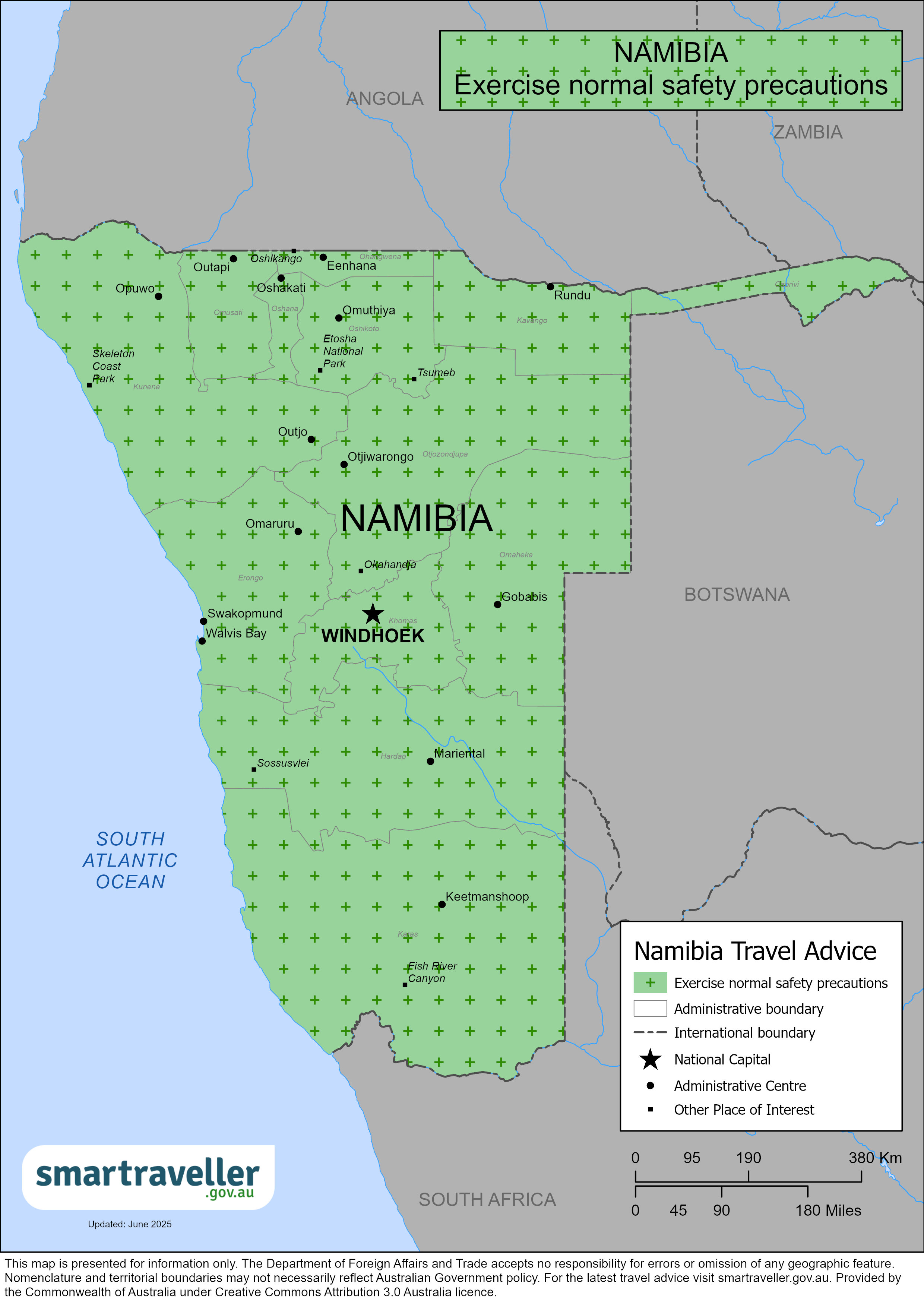Petty crime
Petty crime is common, particularly in urban centres. This can include:
- pickpocketing
- bag-snatching
- theft from motor vehicles
Mobile phones are particularly targeted by pickpockets.
Criminals use distraction techniques, such as offering help, to steal money and valuables.
Car break-ins are common, especially in major urban centres such as:
- Windhoek
- Swakopmund
- Walvis Bay
Violent crime
Violent crime against foreigners includes muggings and robberies. Windhoek, Swakopmund and Walvis Bay are hotspots. The use of diversion tactics to distract possible victims is common.
Tourists have been robbed after stopping for hitchhikers or to help people.
Namibian Police Tourist Protection Unit is responsible for visitor concerns or enquiries. Tourists can attend any police station to seek assistance in Namibia.
Crime increases at night.
To protect yourself from crime:
- avoid walking alone in large towns, particularly at night
- keep car windows up and doors locked, even when moving
- don't leave valuables in your car
- don't offer strangers lifts in your vehicle
- be alert at ATMs and at fuel stations.
HIV/AIDS is common in Namibia. If you're a victim/survivor of violent crime, including sexual assault, seek immediate medical assistance.
Taxi safety
Taxi drivers have robbed travellers.
Risks are highest with unmarked taxis and those hailed on the street.
Use taxis with the Namibia Bus and Taxi Association logo or organised through your hotel or a taxi company.
Don't hail unmarked taxis on the street.
Alternative options for transport are ride-hailing apps such as Yango and Lefa.
Drink spiking
Drink spiking can happen anywhere. Be alert to the potential risks, and don't leave food or drinks unattended. Pay attention when your drinks are being mixed. If you feel any symptoms, tell your friends immediately. Ask someone you trust and know well to take you to a safe place. If a friend shows any of these symptoms, don't leave them alone. You may need to seek medical care.
Methanol poisoning
Locals and foreigners, including Australians, have died or become seriously ill from poisoned drinks overseas. Methanol is highly toxic. As little as one shot can be fatal. Methanol can be added or accidentally created during poor quality alcohol distillation and production. Protect yourself by making smart drink choices. Choose branded beers, ciders, wines and premixed cocktails in sealed bottles and cans. Get urgent medical help if you suspect you’ve been poisoned.
More information:
Credit card fraud
Credit card skimming has been reported at some hotels and lodges.
Don't let your credit card out of your sight.
Check your statements often for fraudulent payments.
Kidnapping
Kidnapping can happen anywhere, anytime, including in destinations that are typically at lower risk.
The Australian Government's longstanding policy is that it doesn't make payments or concessions to kidnappers.
Cyber Security
You may be at risk of cyber-based threats during overseas travel to any country. Digital identity theft is a growing concern. Your devices and personal data can be compromised, especially if you’re connecting to Wi-Fi, using or connecting to shared or public computers, or to Bluetooth.
Social media can also be risky in destinations where there are social or political tensions, or laws that may seem unreasonable by Australian standards. Travellers have been arrested for things they have said on social media. Don't comment on local or political events on your social media.
More information:



